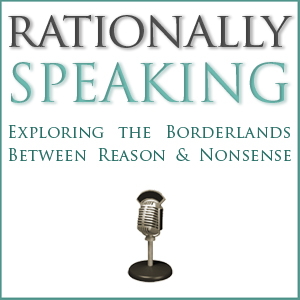Rationally Speaking #54 - The 'isms' Episode
Rationally Speaking Podcast
New York City Skeptics
4.6 • 787 Ratings
🗓️ 12 February 2012
⏱️ 52 minutes
🧾️ Download transcript
Summary
Transcript
Click on a timestamp to play from that location
| 0:00.0 | Rationally speaking is a presentation of New York City skeptics dedicated to promoting critical thinking, skeptical inquiry, and science education. |
| 0:22.6 | For more information, please visit us at NYCCEceptics.org. |
| 0:35.6 | Welcome to rationally speaking, the podcast where we explore the borderlands between reason and |
| 0:40.0 | nonsense. I am your host, Massimo Piliucci, and with me as always is my co-host, Julia Galev. |
| 0:45.7 | Julia, what are we going to talk about today? |
| 0:47.8 | Massimo, today we've got a very meaty episode for our listeners. The topic is a whole cluster of related philosophical positions. |
| 0:58.0 | So we've dubbed this episode, the isms episode. And the philosophical positions we're going to |
| 1:03.3 | talk about include naturalism, scientism, dualism, supernaturalism, and physicalism. |
| 1:14.0 | And I know that's kind of a big mouthful, and a couple more probably. And the connection between all of these isms, these philosophical positions, |
| 1:20.2 | is that they all tackle the question of to what degree science can really explain all of the important and interesting questions about the world that we care about. |
| 1:32.3 | And so we're going to talk about question, how science bears on questions of free will and ethics and aesthetics, because accepting a number of these philosophical positions, which many people and many |
| 1:47.1 | scientists do, means that we have to often give up the notion that there is an answer to many |
| 1:54.6 | of the questions that we care about. So we're going to talk about to what extent that's actually |
| 1:58.5 | true. Right. So it is in some sense about the relationship between science and philosophy, |
| 2:04.2 | at a very fundamental level, however. |
| 2:07.1 | Was that a Freudian slip there, Massimo? |
| 2:08.6 | I hope not. |
| 2:10.6 | I'm telling your colleagues. |
| 2:12.2 | Yes. |
| 2:14.0 | But so at a very fundamental level, that is one of the things that we're going to talk about. |
| 2:21.3 | But also, these are very different, some of the things that we're going to talk about today are different or related and interdependent ways to think about the foundations of reality where by that term I don't mean |
| 2:38.5 | what most people normally think about that is, you know, is the universe made of quirks or |
... |
Please login to see the full transcript.
Disclaimer: The podcast and artwork embedded on this page are from New York City Skeptics, and are the property of its owner and not affiliated with or endorsed by Tapesearch.
Generated transcripts are the property of New York City Skeptics and are distributed freely under the Fair Use doctrine. Transcripts generated by Tapesearch are not guaranteed to be accurate.
Copyright © Tapesearch 2025.

